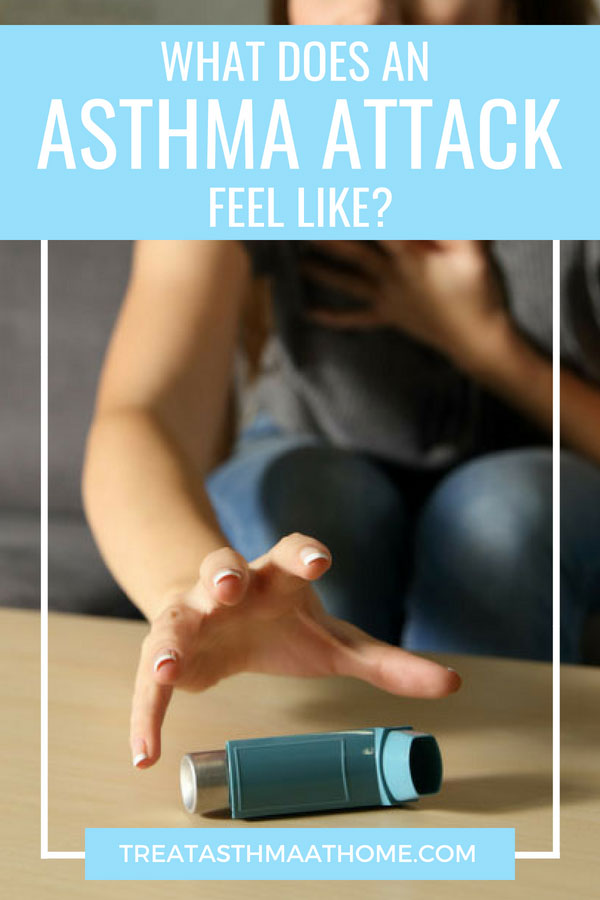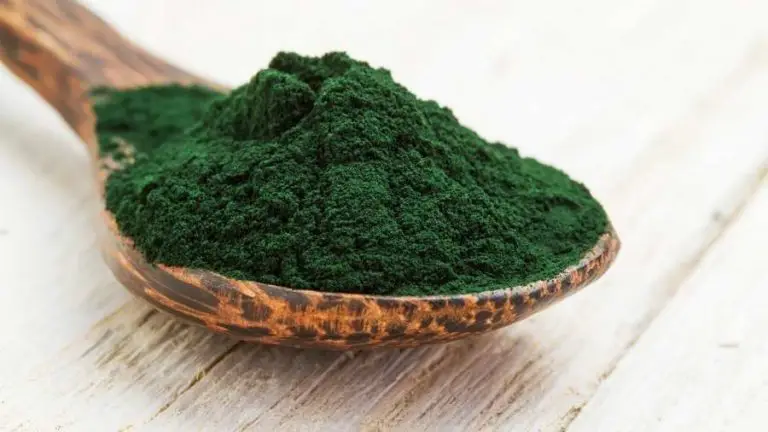What Does An Asthma Attack Feel Like?

If you’ve stumbled across this article, it’s probably because you’re asking yourself, ‘what does an asthma attack feel like?’
I see this question a lot and, as a lifelong asthmatic, I’m in a unique position to give an answer. I (unfortunately) have years of experience with both experiencing and treating my own asthma attacks.
So maybe you have a child or partner with asthma and you want to understand their experiences.
Or maybe you’re experiencing some asthma symptoms and are curious if you might in fact be asthmatic.
You might even be having an asthma attack right now.
(And if you think you might be having an attack, please seek medical treatment if you don’t have a relief puffer. Learn more about how to treat and prevent asthma attacks without medicine here).
A quick caveat before we dive in: each person will experience their asthma attacks a little differently, so there’s no ‘universal’ way that asthma attacks feel.
This is because of the different types of asthma out there, plus different personalities and sensibilities to stress and physical discomfort.
That being said, while the causes and triggers of asthma attacks will vary, the overall feeling of not being able to breathe correctly is pretty constant – it sucks.
But let’s get into the specifics of how asthma attacks feel for us asthmatics.
Asthma Attack = Heavy Chest
 The main sensation I feel when as asthma attack begins to occur is a feeling of weight on the chest. Each breath takes extra effort.
The main sensation I feel when as asthma attack begins to occur is a feeling of weight on the chest. Each breath takes extra effort.
And each breath feels like it’s not ‘enough,’ because each breath is not getting enough oxygen to the blood stream. This is true even when I take what feels like a deep breath – it’s just never deep enough.
For me, asthma attacks almost feel like when you’ve stuffed yourself on a big meal, and you feel overfull and have acid reflux.
So if you don’t have asthma, imagine you’ve just eaten the biggest, most acidic meal of your life. You’ve never felt so full. And you’re sitting on your couch breathing heavy. You’ve got a general sense of discomfort and burning in your upper chest area and throat.
And no matter which way you adjust your body, whether you sit up or sit down or move around or lie down … the awful feelings persist.
That’s what an asthma attack feels like. Except with indigestion, you just have to wait for the food to digest. For asthmatics, it’s not so easy.
With uncontrolled asthma, an asthma attack will likely get worse and worse until it’s treated with medicine.
I talk about how it’s important for asthmatics to try to use their rescue inhaler less during tough moments, but a true asthma attack will need intervention.
(Learn the 5 steps I’ve taken to drastically cut my reliance on my rescue inhaler here).
This is why it’s crucial for people with asthma (or their loved ones) to always keep their rescue inhaler (usually ventolin or albuterol) close by.
Even if you manage your asthma well like I do (see my asthma journey here), you never know when you might need it.
Asthma Attack = Drowning
 Even though symptoms and triggers vary from person to person, most asthmatics will feel like they’re not getting enough oxygen while having as asthma attack. And that feels like drowning.
Even though symptoms and triggers vary from person to person, most asthmatics will feel like they’re not getting enough oxygen while having as asthma attack. And that feels like drowning.
Of course, if you’re under water, you literally have no air to breathe. But when you’re experiencing an asthma attack, you’re surrounded by air – your body just isn’t doing it’s job of oxygenating itself efficiently.
And this is what leads to all the awful feelings experienced by those having an asthma attack.
If you don’t have asthma and you’re curious what this might actually feel like, try this little experiment. Get in your bed and pull the covers tightly over your head. There should be a pocket of air under the covers, but it won’t last long.
As the air runs out and becomes stale, you’ll still be able to breathe, but it just won’t feel the same as taking a big breath of fresh air. You’ll soon start to feel like you’re overheating and maybe even start to sweat.
This is the point where any sane person would simply take the covers off and breathe normally again. But what if you can’t??? That’s the experience of an asthmatic with poorly managed asthma, having an attack without a rescue inhaler. Scary.
Asthma Attack = A Symphony In Your Chest
Whenever he listened with his stethoscope, my doctor would always tell me that it sounded like a miniature symphony was playing in my chest.
At the time I giggled at the funny metaphor, but it’s actually quite accurate.
As your airways constrict and fill with mucus, only tiny passages are left for the air to travel through. This makes for a very noisy, whistle-y breathing experience.
(In fact, that noise is one of the first signs of an impending asthmatic episode and it lets you know that you need to act now.)
So if you think you might be having an asthmatic episode, try blocking your ears with your fingers and taking a deep slow breath. Do you hear that symphony?
And if it’s your child or other loved one and you’re trying to assess what the problem is, try putting your ear to their chest while they try to breathe.
If you hear the little whistles and wheezes that are synonymous with an asthma attack – it’s time to act.
Prevent Asthma Attacks Before They Start
I hope I’ve made the point clear: asthma attacks might look a little different for different people, but they’re never fun.
Now that you know what an asthma attack feels like, you’re probably doubly committed to making sure your loved one has to experience them as little as possible.
Thankfully, it is possible to reduce the amount of asthma attacks and the amount you need to take your rescue inhaler – I’m living proof.
I used to take multiple puffs every day and night. And I now only need it when I’m really sick. There is hope if you’re willing to do a little work!
And please share with our community in the comments below – how do you help your loved one when they are experiencing an asthma attack? Please share any helpful tips, so that we can all help each other.








